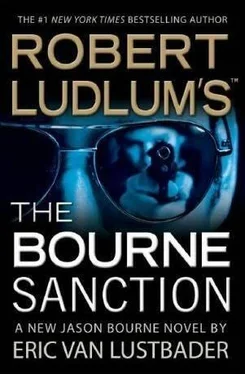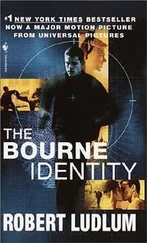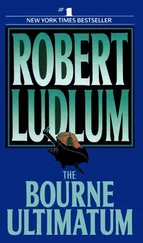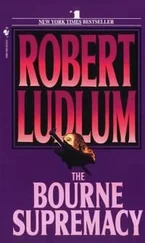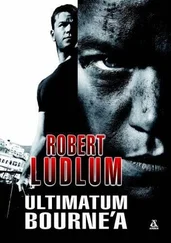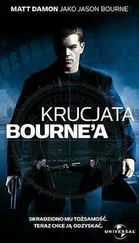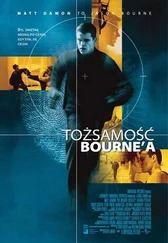Robert Ludlum - The Bourne Sanction
Здесь есть возможность читать онлайн «Robert Ludlum - The Bourne Sanction» весь текст электронной книги совершенно бесплатно (целиком полную версию без сокращений). В некоторых случаях можно слушать аудио, скачать через торрент в формате fb2 и присутствует краткое содержание. Жанр: Триллер, на английском языке. Описание произведения, (предисловие) а так же отзывы посетителей доступны на портале библиотеки ЛибКат.
- Название:The Bourne Sanction
- Автор:
- Жанр:
- Год:неизвестен
- ISBN:нет данных
- Рейтинг книги:4 / 5. Голосов: 1
-
Избранное:Добавить в избранное
- Отзывы:
-
Ваша оценка:
- 80
- 1
- 2
- 3
- 4
- 5
The Bourne Sanction: краткое содержание, описание и аннотация
Предлагаем к чтению аннотацию, описание, краткое содержание или предисловие (зависит от того, что написал сам автор книги «The Bourne Sanction»). Если вы не нашли необходимую информацию о книге — напишите в комментариях, мы постараемся отыскать её.
The Bourne Sanction — читать онлайн бесплатно полную книгу (весь текст) целиком
Ниже представлен текст книги, разбитый по страницам. Система сохранения места последней прочитанной страницы, позволяет с удобством читать онлайн бесплатно книгу «The Bourne Sanction», без необходимости каждый раз заново искать на чём Вы остановились. Поставьте закладку, и сможете в любой момент перейти на страницу, на которой закончили чтение.
Интервал:
Закладка:
Devra watched him warily. “Hey. I’m dying for something to eat.”
Arkadin laughed. “Aren’t we all?”
His hawk-like gaze took in the street once more. This time the hairs on the back of his neck stirred as he stepped to the side of the window. A car he’d heard approaching had pulled up in front of the building. Devra, alerted by the sudden tension in his body, moved to the window behind him. What caught his attention was that though its engine was still running, all its lights had been extinguished. Three men exited the car, headed for the building entrance. It was past time to leave.
He turned away from the window. “We’re going. Now.”
“Pyotr’s people. It was inevitable they’d find us.”
Much to Arkadin’s surprise she made no protest when he hustled her out of the apartment. The hallway was already reverberating with the tribal beat of heavy shoes on the concrete floor.
Bourne found walking unpleasant but hardly intolerable. He’d put up with a lot worse than a flayed heel in his time. As he followed the professor down a metal staircase into the basement, he reflected that this was proof again that there were no absolutes when it came to people. He had assumed that Specter’s life was neat, tidy, dull, and quiet, restricted by the dimensions of the university campus. Nothing could be farther from the truth.
Halfway down, the staircase changed to stone treads, worn by decades of use. Their way was guided by plenty of light from below. They entered a finished basement made up of movable walls that separated what looked like office cubicles outfitted with laptop computers attached to high-speed modems. All of them were staffed.
Specter stopped at the last cubicle, where a young man appeared to be decoding text that scrolled across his computer screen. The young man, becoming aware of Specter, pulled a sheet of paper out of the printer hopper, handed it to him. As soon as the professor read it a change came over his demeanor. Though he kept his expression neutral, a certain tension stiffened his frame.
“Good work.” He gave the young man a nod before he led Bourne into a room that appeared to be a small library. Specter crossed to one section of the shelves, touched the spine of a compilation of haiku by the master poet Matsuo BashoЇ. A square section of the books opened to reveal a set of drawers. From one of these Specter pulled out what looked like a photo album. All the pages were old, each one wrapped in archival plastic to preserve them. He showed one of them to Bourne.
At the top was the familiar war eagle, gripping a swastika in its beak, the symbol of Germany’s Third Reich. The text was in German. Just below was the word OSTLEGIONEN, accompanied by a color photo of a woven oval, obviously a uniform insignia, of a swastika encircled by laurel leaves. Around the central symbol were the words TREU, TAPIR, GEHORSAM, which Bourne translated as “loyal, brave, steadfast.” Below that was another color photo of a woven rampant wolf’s head, under which was the designation: OSTMANISCHE SS-DIVISION.
Bourne noted the date on the page: 14 December 1941.
“I never heard of the Eastern Legions,” Bourne said. “Who were they?”
Specter turned the page and there, pinned to it, was a square of olive fabric. On it had been sewn a blue shield with a black border. Across the top was the word BERGKAUKASIEN-Caucasus Mountains. Directly beneath it in bright yellow was the emblem of three horses’ heads joined to what Bourne now knew was a death’s head, the symbol of the Nazi Schutzstaffel, the Protective Squadron, known colloquially as the SS. It was exactly the same as the tattoo on the gunman’s arm.
“Not were, are .” Specter’s eyes glittered. “They’re the people who tried to kidnap me, Jason. They want to interrogate me and kill me. Now that they’ve become aware of you, they’ll want to do the same to you.”
Eight
THE ROOF or the basement?” Arkadin said.
“The roof,” she said at once. “There’s only one way in and out of the basement itself.”
They ran as fast as they could to the stairway, then took the steps two at a time. Arkadin’s heart pounded, his blood raced, the adrenaline pumped into him with every leap upward. He could hear his pursuers laboring up below him. The noose was tightening around him. Racing to the far end of the narrow hallway, he reached up with his right hand, pulled down the metal ladder that led to the roof. Soviet structures of this era were notorious for their flimsy doors. He knew he’d have no trouble breaking out onto the roof. From there, it was a short jump to the next building and the next, then down to the streets, where it would be easy to elude the enemy.
Boosting Devra’s body through the square hole in the ceiling, he clambered up. Behind him, the shouted calls of the three men: Filya’s apartment had been searched. All of them were coming after him. Gaining the tiny landing, he now faced the door to the roof, but when he tried to push against the horizontal metal bar nothing happened. He pushed harder, with the same result. Fishing a ring of slender metal picks out of his pocket, he inserted one after another into the lock, fiddling it up and down, getting nowhere. Looking more closely, he could see why: The interior of the cheap lock was rusted shut. It wouldn’t open.
He turned back, staring down the ladder. Here came his pursuers. He had nowhere to go.
On June 22, 1941, Germany invaded Soviet Russia,” Professor Specter said. “As they did so they came upon thousands upon thousands of enemy soldiers who either surrendered without a fight or were flat-out deserting. By August of that year the invading army had interned half a million Soviet prisoners of war. Many of them were Muslims-Tatars from the Caucasus, Turks, Azerbaijani, Uzbek, Kazakhs, others from the tribes in the Ural Mountains, Turkestan, Crimea. The one thing all these Muslims had in common was their hatred of the Soviets, Stalin in particular. To make a very long story short, these Muslims, taken as prisoners of war, offered their services to the Nazis to fight alongside them on the Eastern Front, where they could do the most damage both by infiltration and by decoding Soviet intelligence transmissions. The Fьhrer was elated; the Ostlegionen became the particular interest of Reichsfьhrer SS Heinrich Himmler, who saw Islam as a masculine, war-like religion that featured certain key qualities in common with his SS philosophy, mainly blind obedience, the willingness for self-sacrifice, a total lack of compassion for the enemy.”
Bourne was absorbing every word, every detail of the photos. “Didn’t his embrace of Islam fly in the face of the Nazi racial order?”
“You know humans better than most, Jason. They have an infinite capacity for rationalizing reality to fit their personal ideas. So it was with Himmler, who had convinced himself that the Slavs and the Jews were subhuman. The Asian element in the Russian nation made those people who were descended from the great warriors Attila, Genghis Khan, Tamerlane fit his criteria of superiority. Himmler embraced the Muslims from that area, descendants of the Mongols.
“These men became the core of the Nazi Ostlegionen, but the cream of the crop Himmler reserved for himself, training them in secret with his best SS leaders, honing their skills not simply as soldiers, but as the elite warriors, spies, and assassins it was widely known he’d yearned to command. He called this unit the Black Legion. You see, I’ve made an exhaustive study of the Nazis and their Ostlegionen.” Specter pointed to the shield of three horses’ heads joined by the death’s head. “This is their emblem. From 1943 on it became more feared than even the SS’s own twin lightning bolts, or the symbol of its adjunct, the Gestapo.”
Читать дальшеИнтервал:
Закладка:
Похожие книги на «The Bourne Sanction»
Представляем Вашему вниманию похожие книги на «The Bourne Sanction» списком для выбора. Мы отобрали схожую по названию и смыслу литературу в надежде предоставить читателям больше вариантов отыскать новые, интересные, ещё непрочитанные произведения.
Обсуждение, отзывы о книге «The Bourne Sanction» и просто собственные мнения читателей. Оставьте ваши комментарии, напишите, что Вы думаете о произведении, его смысле или главных героях. Укажите что конкретно понравилось, а что нет, и почему Вы так считаете.
